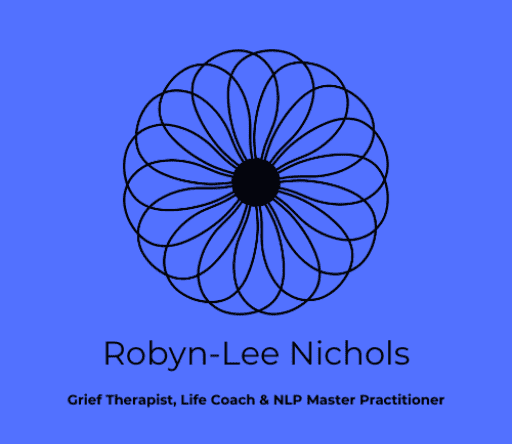Expected vs. Unexpected Loss: Three Strategies to Help you Understand and Cope with Debilitating Grief
Grief is a universal human experience, coping with debilitating grief is often very unique for each of us. Its manifestation can vary significantly depending on how a loss occurs. This article explores two distinct scenarios of grief—expected and unexpected death—and provides guidance for managing the grieving process.
Grief is so complex, and does require so much understanding and by far, self-care with any form of grief is an essential first-step.
Expected Loss: The Anticipatory Journey, and coping with debilitating Grief
When death comes as an anticipated event, such as through terminal illness or advanced age, loved ones often experience what is known as anticipatory grief. This unique grieving process begins well before the actual loss occurs, creating both challenges and opportunities for emotional processing.
During expected loss, family members and friends have time to:
- Engage in meaningful conversations with their loved one
- Address unresolved issues or conflicts
- Make practical and emotional preparations
- Say goodbye in personally significant ways
- Begin processing their grief while their loved one is still present
However, anticipated loss comes with its own set of emotional complexities. Many people report feeling guilty for grieving while their loved one is still alive, or experiencing exhaustion from prolonged caregiving. In many instances, the family dynamics of those being left behind are shattered, which leaves a completely new landscape of relationship to try and navigate. The extended period of anticipation can also create complicated emotions, including both a desire for the suffering to end and guilt over having such thoughts.
Being the complex subject that it is, reaching out to help with the processing of all of the moving parts, is a courageous step on your recovery journey. Coping with debilitating grief does not have to be a lonely journey.
Unexpected Loss: When Grief Strikes Without Warning
Sudden death—whether through accident, heart attack, suicide, or other unexpected causes—creates a dramatically different grieving experience. Coping with debilitating grief and shock of unexpected loss can be particularly traumatic, often leading to:
- Intense feelings of disbelief and denial
- Difficulty accepting the reality of the loss
- Persistent thoughts about the last interactions
- Questions about preventability and “what if” scenarios
- Complicated emotional responses, including anger and guilt
- Potential symptoms of post-traumatic stress
Without the opportunity for preparation or goodbye, survivors of unexpected loss often struggle with unfinished business—unsaid words, unresolved conflicts, or unfulfilled plans. The abrupt nature of the loss can make it particularly challenging to process and accept the new reality.
When I was around ten years old, a friend on the swim team past away after an accident. It was tragic, and I remember watching what went on at school, and at swim practices after the event. I am sure, closer friends felt it more, but I remember considering how quickly things can decline, and the unexpected loss left me wondering why I was still on the swim team, because she was a far better swimmer at the time, than I.
There are often so many questions left unanswered, and still to this day, I can cast back my memories on that time and consider what message it was for me. Coping with debilitating grief has become my daily focus when I reflect on this sparking event.
In the Grief Toolkit Tab, I have a memories workbook, which if you, like me have these memories pop in from time to time, can help you resolve some questions.
Common Ground: Managing Grief in Both Scenarios
Despite their differences, both types of loss require similar coping strategies and support mechanisms. Here are three essential tips to help you cope with debilitating grief, regardless of the circumstances:
Immediate Coping Strategies, for coping with debilitating grief
- Acknowledge your feelings without judgment
- Allow yourself to grieve in your own way and time
- Maintain basic self-care routines (sleep, nutrition, hygiene)
- Accept help from others, even for simple tasks
- Stay connected with supportive friends and family
Long-term Healing Approaches
- Join grief support groups or seek professional counseling
- Create meaningful rituals to honor your loved one
- Practice self-compassion during difficult moments
- Engage in gentle physical activity when ready
- Keep a grief journal to process emotions
- Gradually resume activities that bring comfort or joy
Professional Support Indicators
Seek professional help if you experience:
- Persistent difficulty with daily functions
- Prolonged isolation or withdrawal
- Thoughts of self-harm
- Inability to find any pleasure in life
- Overwhelming guilt or anxiety
- Uncontrolled anger or depression
Please remember, that coping with debilitating grief is not something that you have to face alone.
Moving Forward While Honouring the Past
I say this often, and its a fact – grief is not a linear process, and there is no “right” way to grieve. Whether the loss was expected or sudden, healing takes time and patience. Focus on progress rather than perfection, and allow yourself to experience both sorrow and moments of joy without guilt.
Creating a new normal while honouring your loved one’s memory is a gradual process. Consider ways to maintain healthy connections to the deceased through:
- Sharing stories and memories
- Participating in activities they enjoyed
- Contributing to causes they valued
- Creating new traditions that incorporate their memory
Conclusion
While expected and unexpected losses present different challenges, both experiences deserve validation and support. Understanding these differences can help us better support ourselves and others through the grieving process. Remember that seeking help is a sign of strength, not weakness, and that healing is possible even in the face of profound loss.







